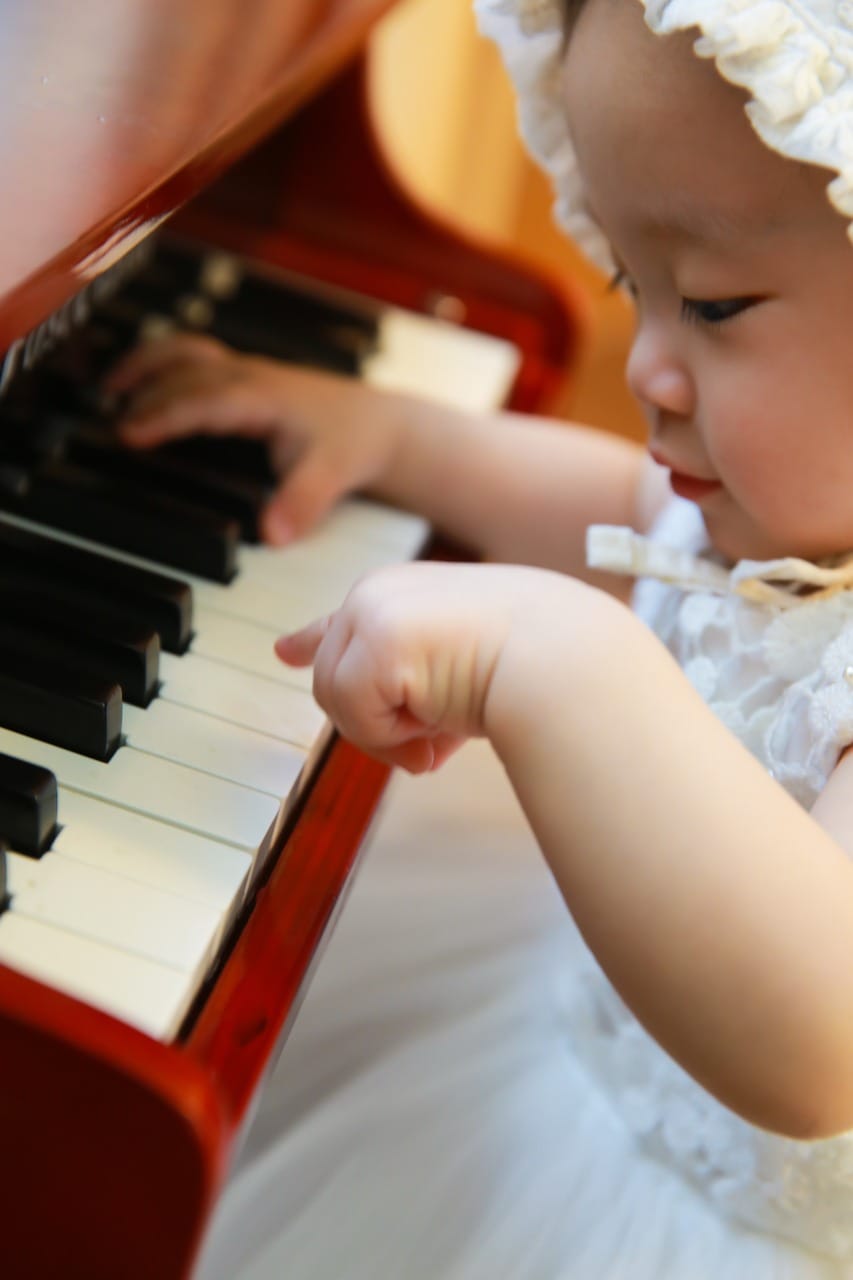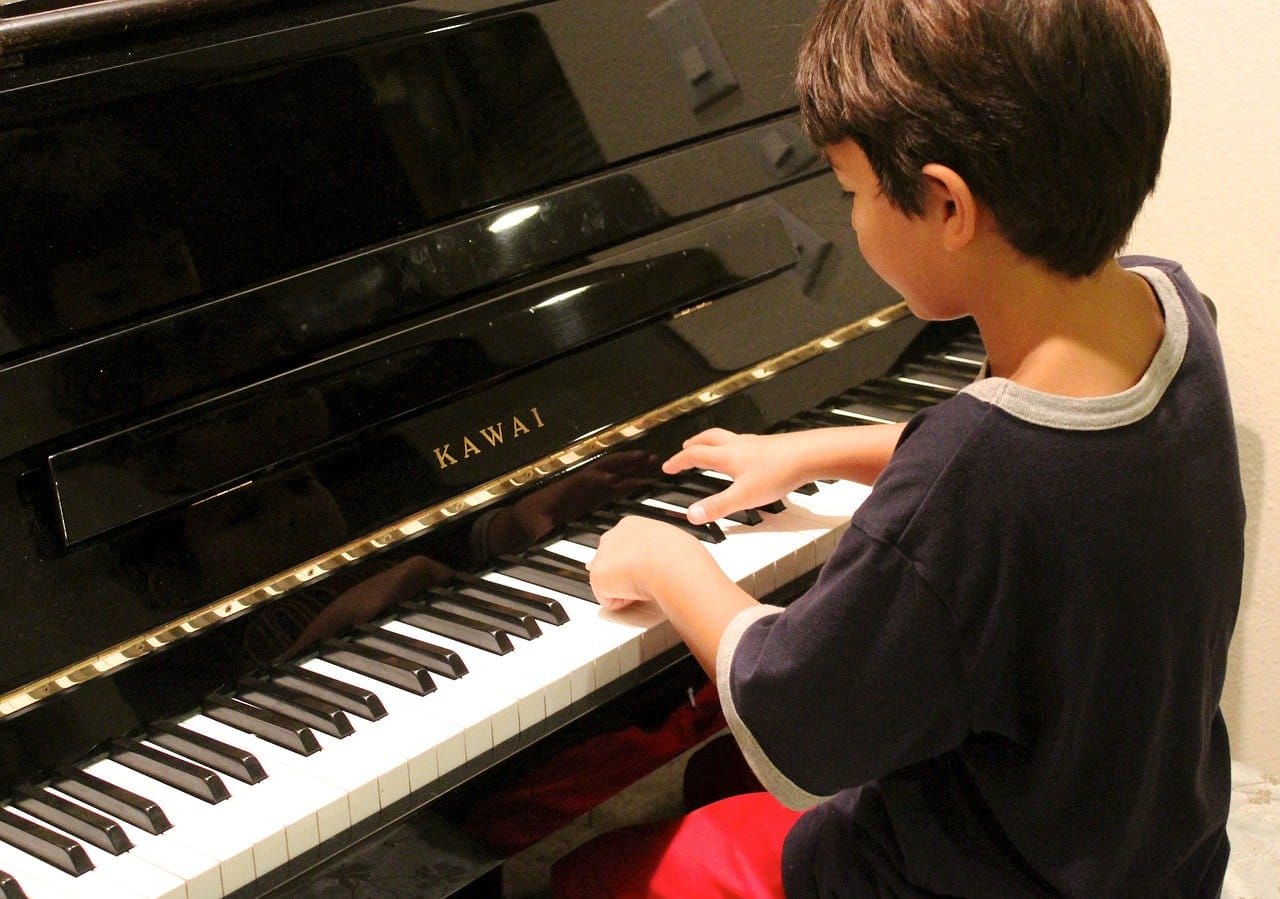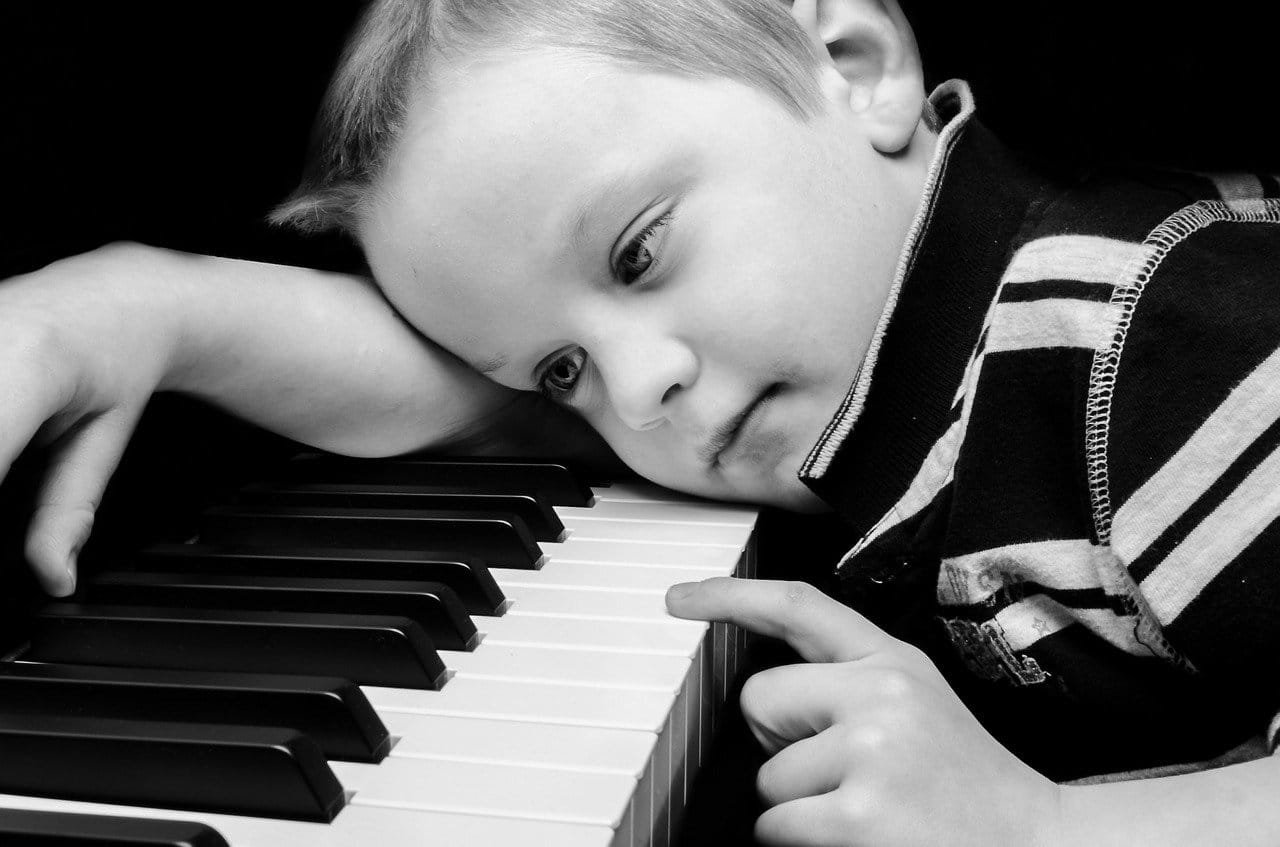Is Your Child Ready for Piano Lessons? – What Age is Right?
The answer isn’t clear cut. Children develop at a different rate and will be ready for piano lessons in their own time. So when is your child ready?
Is your child ready to start piano lessons? The answer is not always clear-cut. Children develop and learn at different rates, so the right age for one child may be wrong for another.
Most importantly, before starting a child on piano lessons, you should make sure that the lessons are actually for the student. Some parents can risk creating an unhealthy learning environment for their child by starting them early to try to give them a head start over other children. This can lead the child toward a bad attitude about lessons and create frustration between parent and child.
If the motive for starting a child on lessons is in the child’s best interests, there are a few questions that may help you decide whether piano lessons are right for your son or daughter.
Does the Child Show Interest?

Children are very natural learners. If a child shows curiosity toward the piano, he or she may be ready to learn more about the instrument.
Does the Child Have Enough Background Knowledge?
Children should be old enough to have certain knowledge first. Most experts agree that the child must be able to count from one to ten and understand the letters used in the musical alphabet: A through G. Some teachers also believe that the student should have started learning how to read before starting lessons.
Does the Child Have a Long Enough Attention Span?

Teachers can break up lessons with games if the child cannot focus the entire half hour. If the child cannot focus for at least 15 minutes though, he or she is probably not ready to take lessons.
Are the Parents Ready?
You or another adult in the child’s life must also make a commitment when a child starts lessons. You don’t have to be musician to help the child learn the importance of practice. Even asking what he or she learned about that day in the lesson can help.
Also, lessons are a long-term commitment. You should understand that an occasional lesson is not the best setup for success. Lessons need to be consistent to develop good habits.
Is There a Good Teacher in the Area?

A teacher is one of the most important parts of the lesson. A good teacher will feel comfortable with answering questions and showing you the lesson location if it’s not your home. He or she should have references available on request.
Some teachers may not want to teach the youngest students if they don’t feel they have enough training for that age group. For a teacher trained to teach the youngest students, look for a Suzuki method teacher. These teachers will have received formal training to teach children who are as young as about four years old.
Remember, you know your child, so if you have doubts about your child’s readiness, it’s probably best to wait a year or so. If a child is not ready for piano lessons, there are many ways you can get their child involved in music. Musikgarten, Music Together and Kindermusik are all group music classes that teach music through movement to children birth through school age. Remember, there’s no age limit to appreciating music!
How to Know a Child is Ready for Piano Lessons
If a child has interest and aptitude, if a piano teacher has enthusiasm, and if parents buy the right piano or keyboard, even a pre-schooler can begin to learn piano.
When a child picks out a tune on a keyboard, many parents rush out to find a piano teacher. Indeed, the success of music programs for kids, such as Suzuki and Kindermusik, indicate that music lessons benefit children at virtually every age. Some music programs and curricula have even been developed for toddlers to start to learn to play the piano.
The trick is to match the type of lesson and the teacher to the child’s readiness to learn certain skills and tasks. Parents and teachers must always remember that they are dealing with a very small child who may still be uncertain of which hand is left and which hand is right. Learning to play the piano is difficult for anyone, let alone a pre-schooler. The pre-school music teacher’s primary jobs are to avoid frustration and to instill a love of learning piano. With four- and five-year-olds, this often translates to simply having fun. Sometimes group music lessons are more appropriate.
At What Age Should a Child Start Piano Instruction?
Typically, piano teachers recommend ages 7 or 8 as optimal for beginning piano lessons. However, almost every piano teacher works with beginning piano students who are younger as well as students who are older.
For younger children, consider the following:
- Can the child focus for the length of a lesson, which may be up to a half an hour long?
- Can the child follow directions?
- Does the child know the letters of the alphabet? (This isn’t necessary, but it is useful.)
- How well-developed is the child’s fine motor coordination? Can he hold a pencil? Wiggle each finger independently?
- Finally, and perhaps most importantly, does the child really want lessons?
Related: How Long Does it Take to Learn Piano: A Comprehensive Guide
Choosing a Piano Teacher for a Small Child
In the first meeting with the teacher, the teacher will evaluate whether the child is ready for the program the teacher offers. Parents need to evaluate the teacher, as well.
The ideal piano teacher for a small child does not need to be a Juilliard graduate with an impressive concert career. Indeed, some highly trained pianists don’t like teaching beginner piano, and only do it because they feel they “have” to. Instead, look for someone who genuinely enjoys teaching piano to small children. The teacher’s attitude should be non-threatening and welcoming. It is also helpful if the teacher has had experience working with small children, has taken classes in early-childhood education, has worked in a pre-school music program, or has studied beginning piano pedagogy..
Recommendations from other parents are always a good place to start. In addition, a local community music school may have teachers who specialize in piano instruction for pre-school children.
The pedagogy involved in teaching piano to a pre-schooler is very different than the pedagogy of teaching a seven- or eight-year-old. Look for a teacher who adjusts curriculum by using age-appropriate materials, introducing games into the lessons, and varying activities so that the child doesn’t have to sit still on a piano bench for a half hour. Examples include rhythm and counting games, marching and moving games, or writing on a white board.
Be aware that many teachers of preschool children require that parents attend lessons and act as practice coaches during the week. To be effective, parents who don’t already know a little bit about music have to learn along with the child, at least for the first year or two. Musical parents obviously have a leg up on the process, but they, too, need to pay attention so that they understand the assignments and can mimic the teacher’s approach.
Buying an Acoustic Piano or a Digital Keyboard for a Young Piano Student
Most piano teachers recommend acoustic pianos for lessons, especially for a family that is serious about musical education. The acoustic piano versus digital piano debate will not be resolved anytime soon; for serious classical music, an acoustic piano will ultimately be required, although a digital piano can be useful for classical pianists. For a small child, digital keyboards are less intimidating (and for parents, they are less expensive). Requirements for a serviceable digital piano are:
- Touch control. This means that when the player pushes a note with different amounts of pressure, the note sounds louder or softer. This is non-negotiable.
- Weighted keys. This means that the keys have some resistance and mimic the feel of an acoustic piano. Using weighted keys develops finger strength.
- 88 keys The full complement of 88 keys is preferable because the student develops a sense of keyboard geography by using peripheral vision that takes in the whole keyboard.
- A reputable manufacturer such as Yamaha, Roland, Kawai, or Casio.
Parents who closely evaluate a child’s interest in and readiness for piano lessons, who choose a sympathetic piano teacher, who assist in practicing, and who purchase an appropriate keyboard will give their children a head-start in exploring and developing a life-long interest in learning music.







